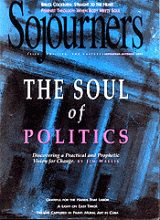An exceptionally articulate young man joined a new-members class in a Colorado congregation. He was completing a doctorate in English literature and was thrilled to discover that many of the tools of his study were useful in reading and studying the Bible and the tradition of his faith. He found his life among the lives of Gods faithful people and wanted to join the church.
He asked to meet with me alone. He told me that he was gay and preparing to come out. Could he be openly gay and be a member of that congregation? Would he be welcomed?
The answer to the first question was yes. He could be a full member in good standing; he could worship with the congregation. But I could give him little hope that the congregation would welcome him as a kindred member of the body of Christ. We were unable, as the people of God, to discuss issues of faith and human sexuality without anger, fear, and hate dominating the conversation.
That was a decade ago. Today more congregations are drawn into the discussion through members who are openly gay, by denominational statements and studies, and in everyday encounters in a society coming to terms with its diversity and its sexuality.
The book Caught in the Crossfire is presented as a tool to assist Christians in their discussions about homosexuality and faith by defining some general themes of the current debate, offering contrasting positions, and inviting persons of faith into the debate. Six of its eight chapters are devoted to particular themes, such as the role of scripture or the possibility of gay unions in the church. After writers present contrasting positions, the editors briefly summarize each chapter and provide a study guide to prompt discussion. The intent is to present an aid to dialogue in the context of a responsible theological framework.
Read the Full Article
